
Exciting new series on “Voice, Body and Movement for Lawyers – How to connect with the jury and find Justice Through Dramatic Technique!”
Click here to find out more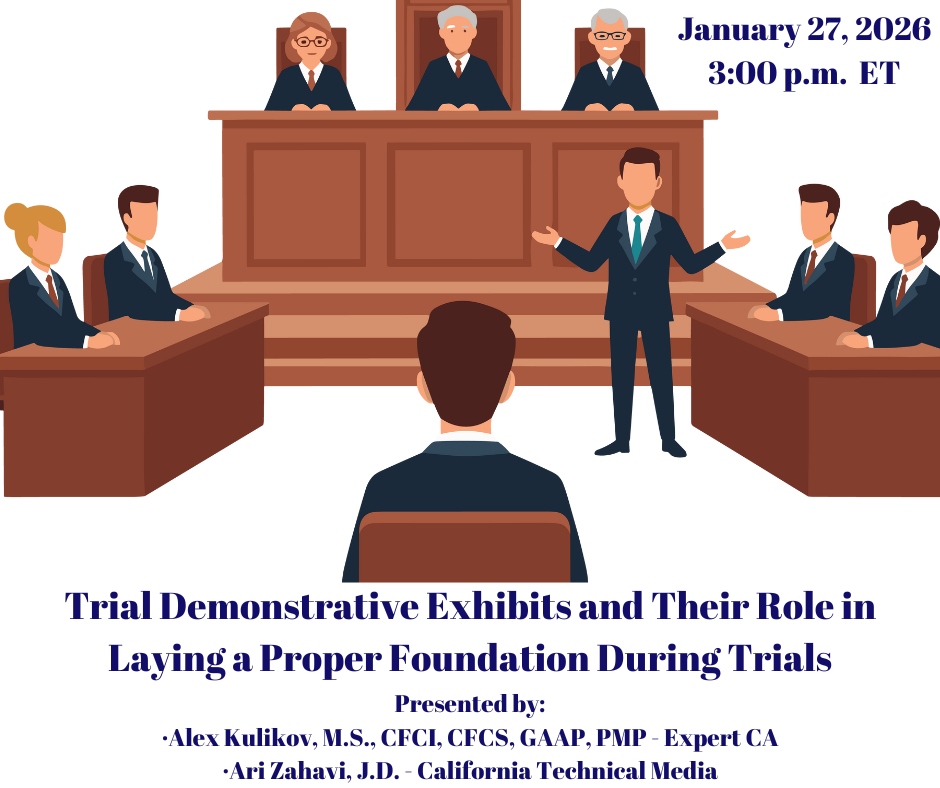
A litigator’s role is to shape how key decision-makers - judges, jurors, and opposing counsel -think about the facts. Every argument, every piece of evidence, every expert opinion is a tool to build a specific understanding. Because people act based on what they believe to be true, creating that belief is the litigator’s most important job. Legal precedent, evidence, and expert testimony lay the foundation. But to truly persuade, litigators rely on visual strategists — professionals who know how to turn complex concepts into clear, compelling narratives.
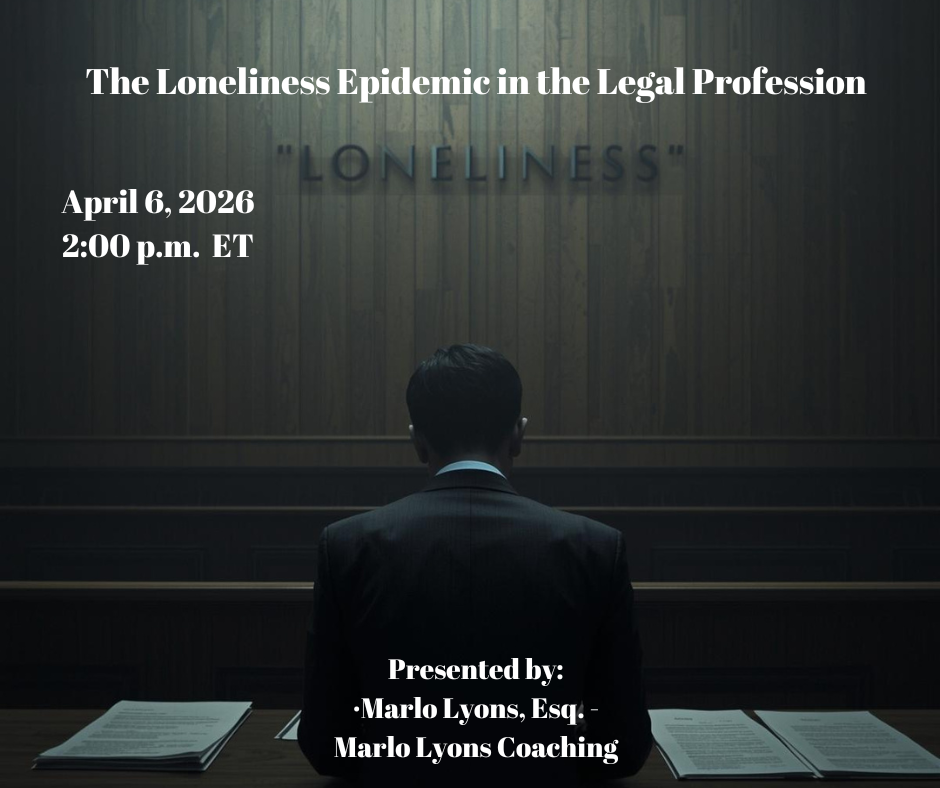
Loneliness isn’t just a personal issue; it’s a silent epidemic in the legal profession t...
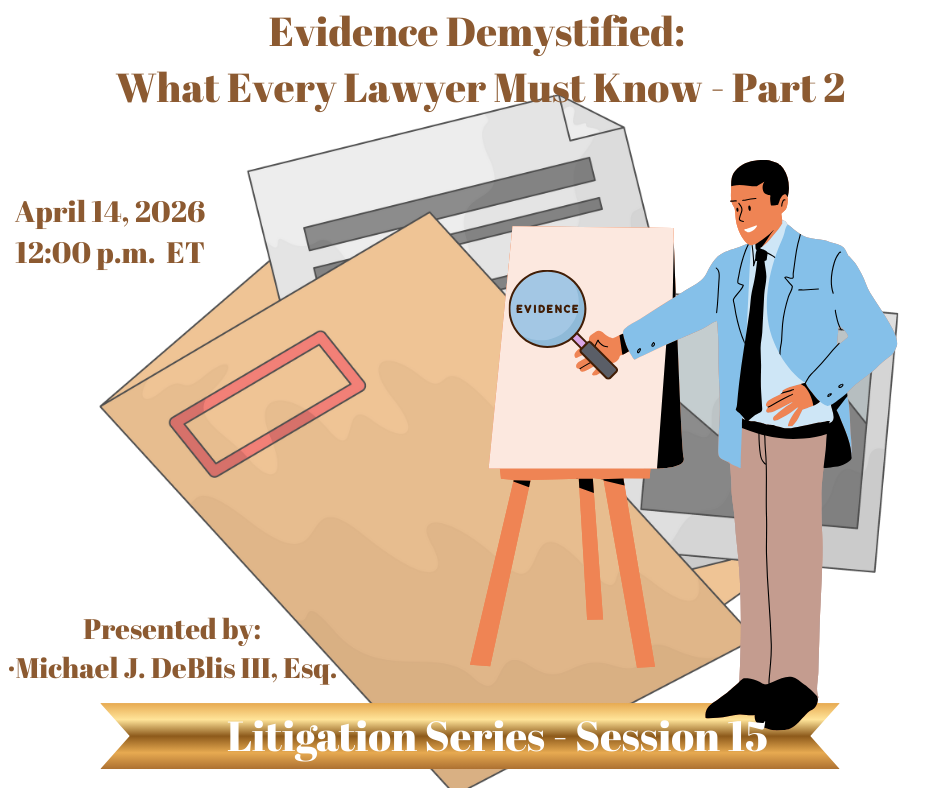
Evidence Demystified Part 2 covers key concepts in the law of evidence, focusing on witnesses, credi...
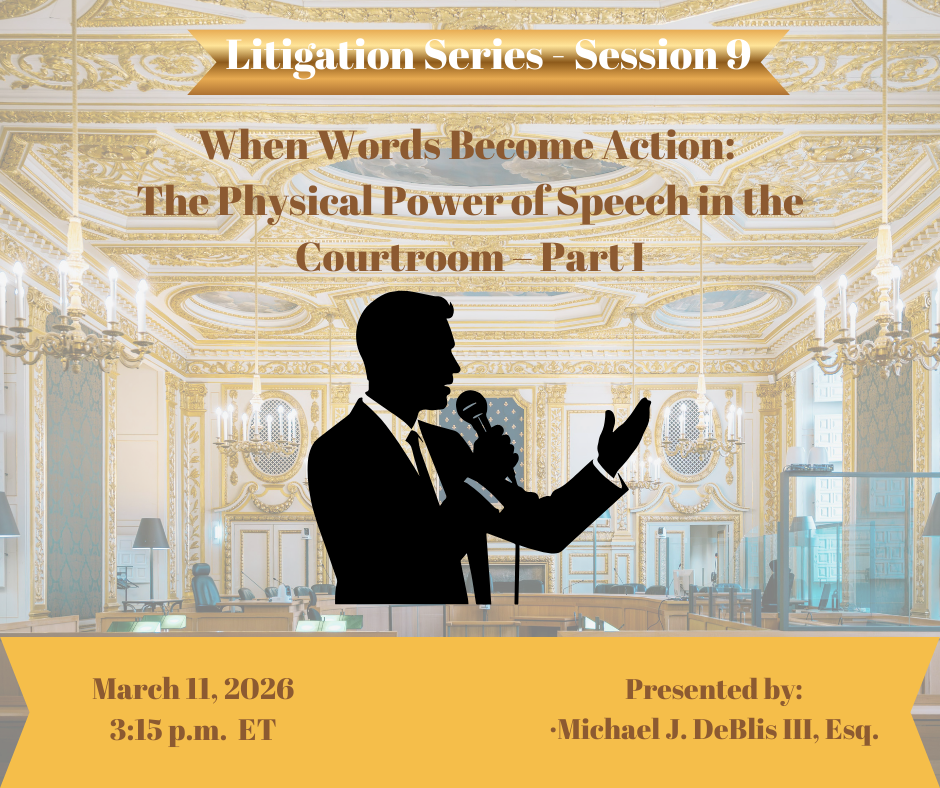
This program focuses on overcoming the inner critic—the perfectionist, self?doubting voice tha...
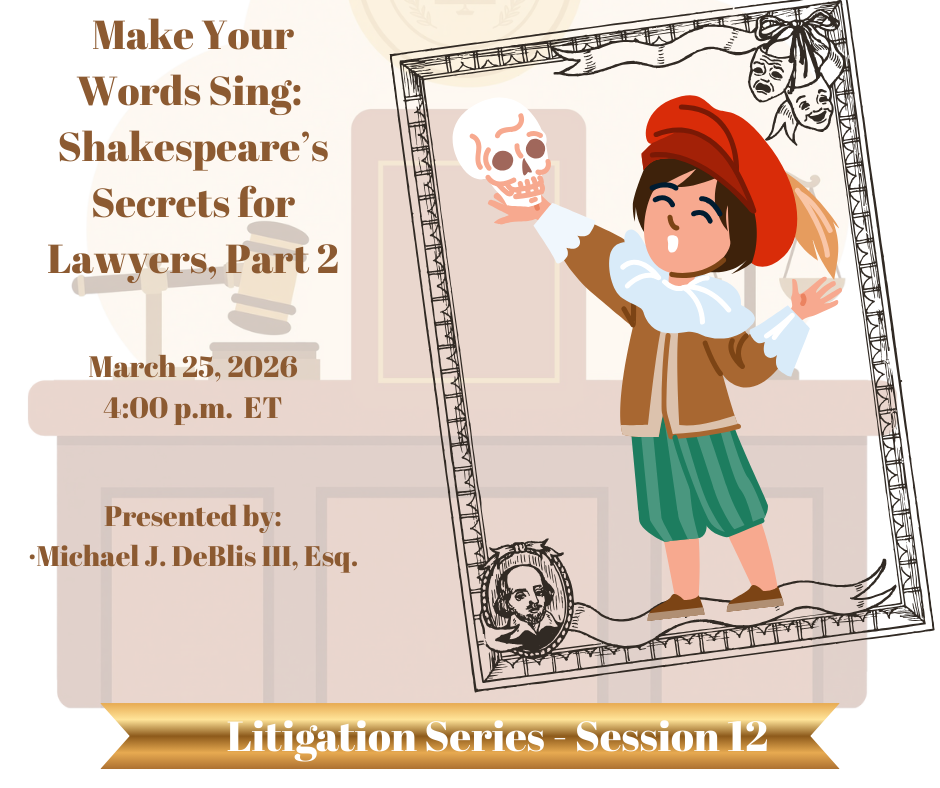
This companion program to Part 1 goes deeper into the rhetorical power of Shakespeare, emphasizing h...

This session highlights the legal and compliance implications of divergences between GAAP and IFRS. ...
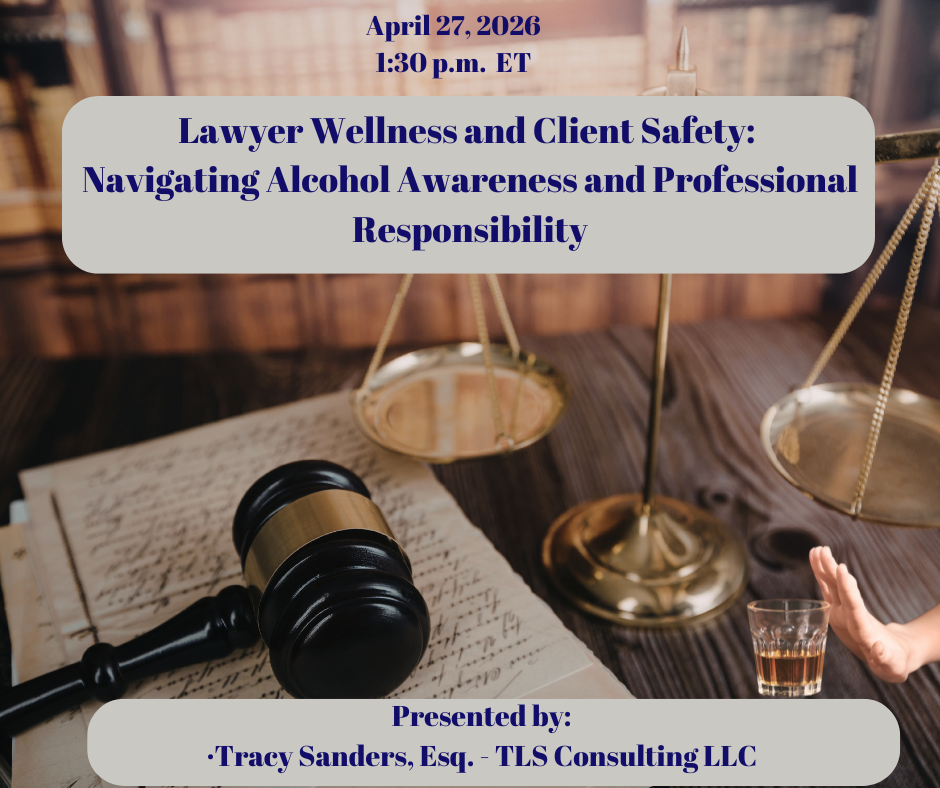
This continuing legal education (CLE) program highlights the intersection of lawyer wellness, alcoho...
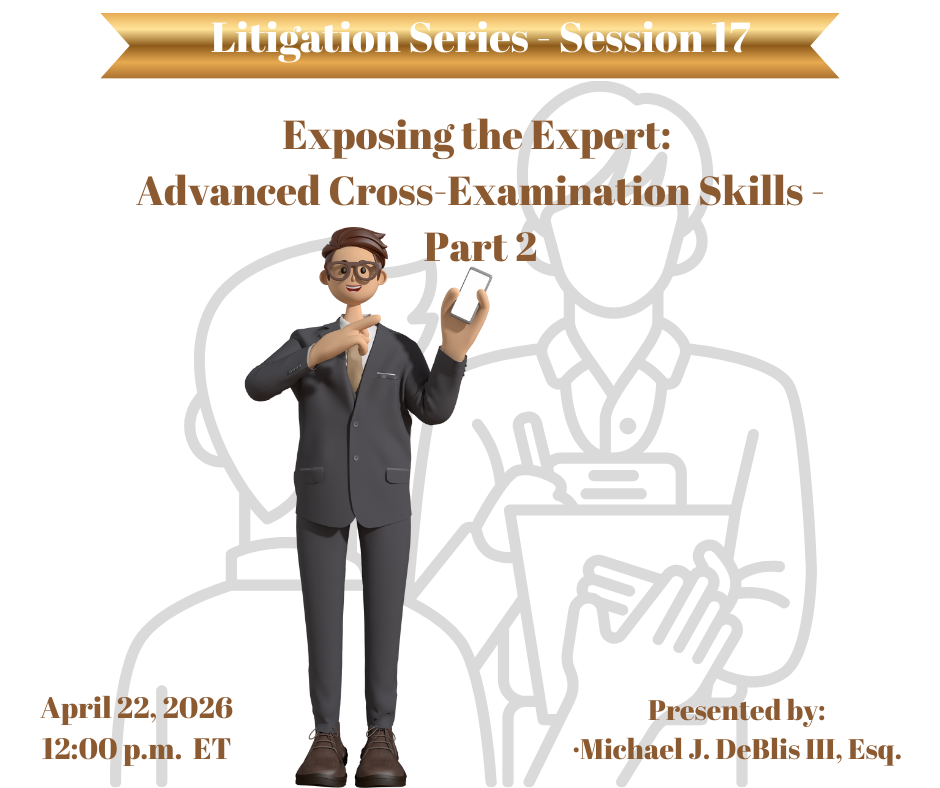
Part 2 - This program will continue the discussion from Part 1 focusing specifically on cross?examin...
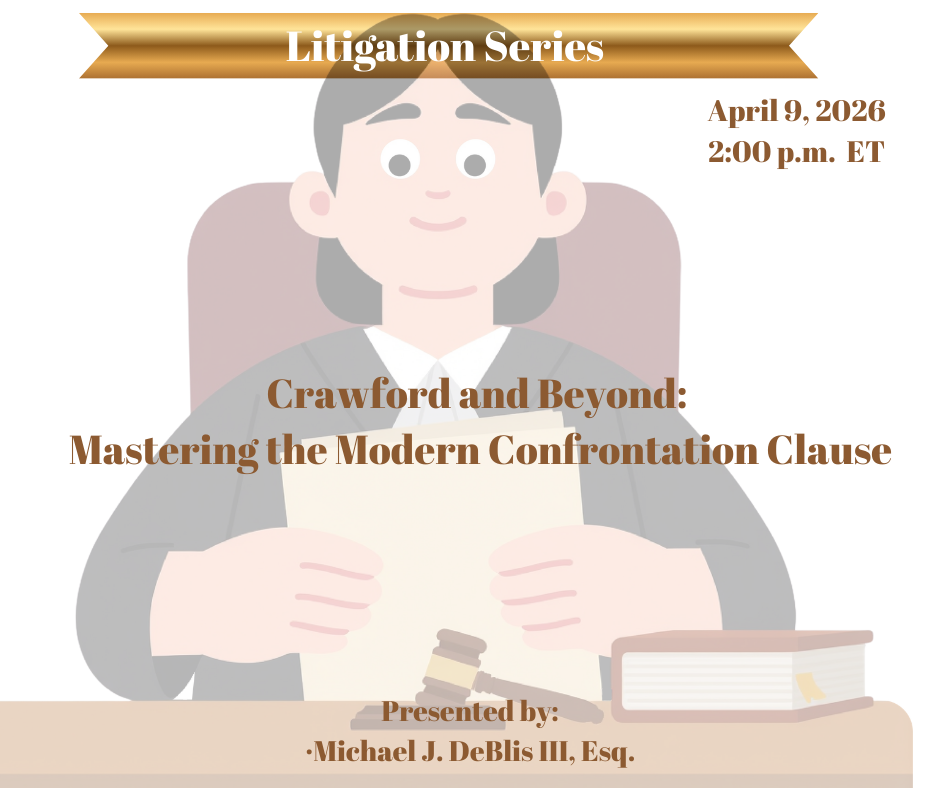
This program provides a comprehensive analysis of the Sixth Amendment Confrontation Clause as reshap...
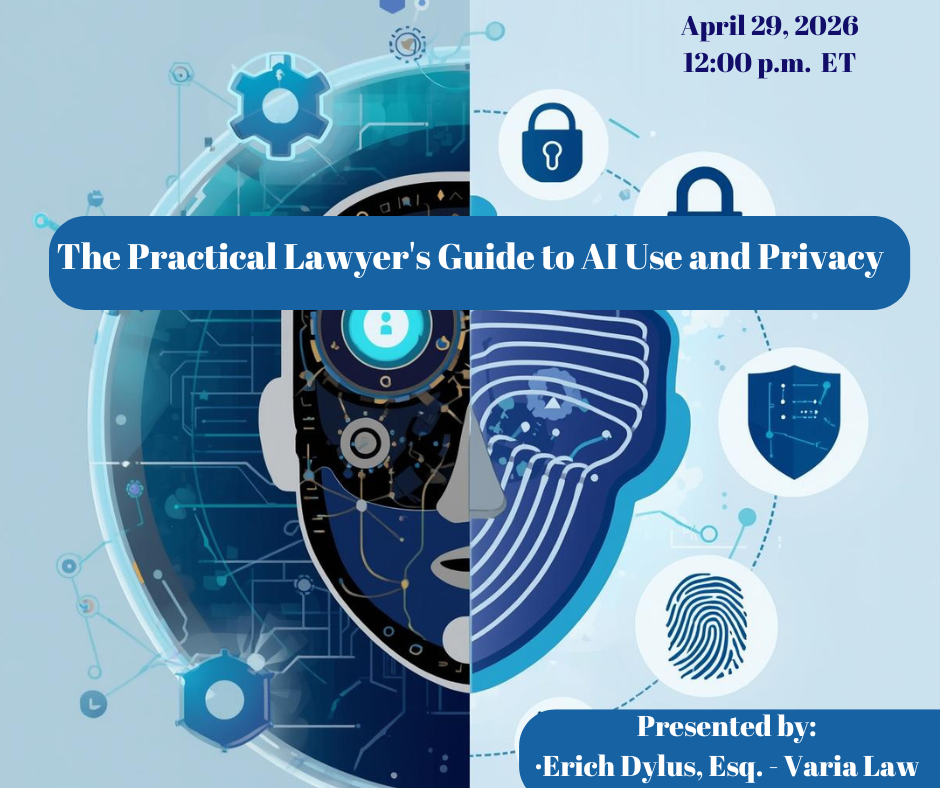
Review the basic software concepts and effective uses of generative AI, prompting strategies, and me...
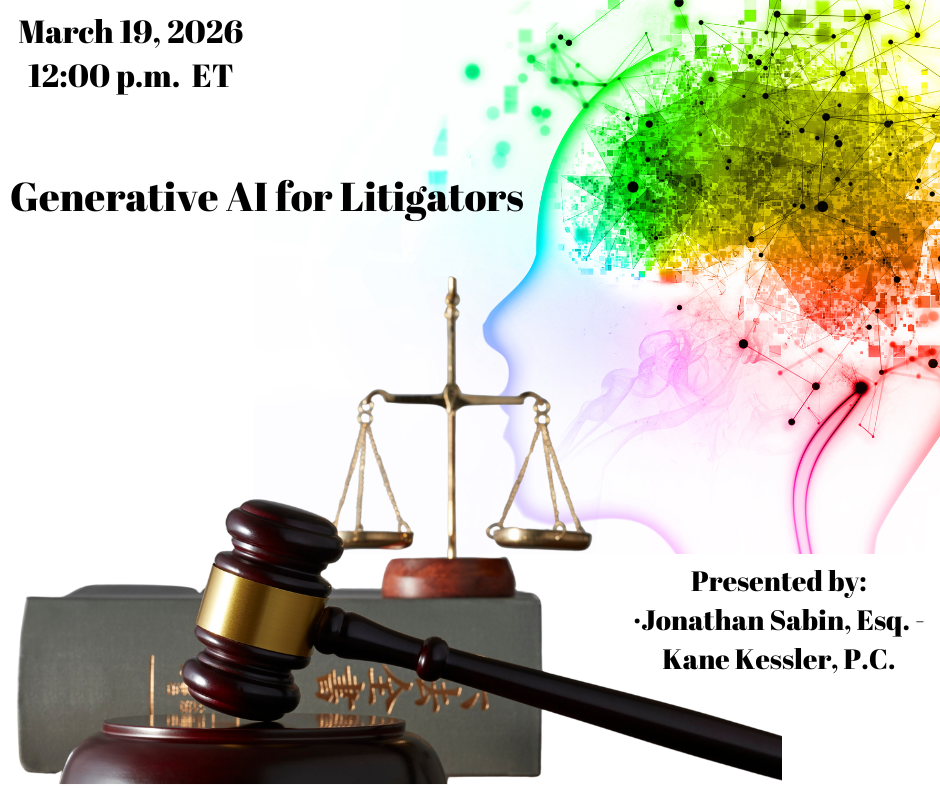
Explore the transformative potential of generative AI in modern litigation. “Generative AI for...